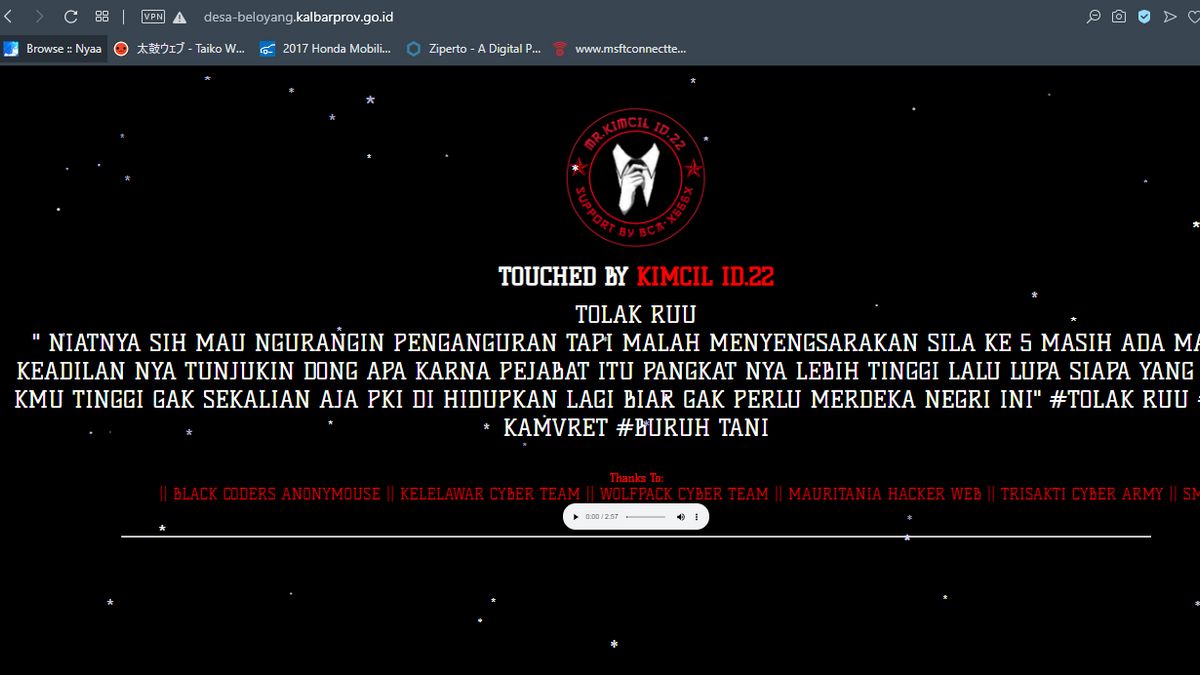JAKARTA - Recently, the sites of the ministry and local government have been targeted for hacking, this action is suspected of being an outburst of public disappointment with the passage of the Job Creation Law by the DPR. Various hacker groups were busy voicing their rejection and frustration with the attitude of the DPR.
Cybersecurity expert from Vaksincom, Alfons Tanujaya, said that there were indeed frequent hacks of government-owned websites. This reminds us how vulnerable the cybersecurity of state institutions is so that it is easily infiltrated.
"Basically, hacking a site is not a difficult thing and does not require too high a skill. Moreover, ministries or government sites are not well maintained," Alfons told VOI, Thursday, October 8.
He explained that many government and ministry websites were hacked by hacker groups, indicating that cybersecurity was poorly maintained so that it was not properly maintained. This is a gap for hackers to overload or take over the pages of the site.
"One of the reasons is because many government and ministerial site maintenance is project-based in nature and is short-term. While site maintenance is long-term and endless because new security gaps will always be found and must be patched every time they are found," he explained.
According to Alfons, hackers are not without reason targeting government websites, it is believed that because of their high publicity value, they can easily attract people's attention.
"That is why the managers and owners of government websites must be aware of the security of their sites because they are often the target of attacks," said Alfons.
He also said that hackers always have such neat loopholes, even without us knowing it, they can easily guess the passwords used by the ministry and local government sites.
"Most site hacks are exploited by security holes and some are caused by poor credential security management such as not implementing TFA, using easy-to-guess passwords, side scripting (hacking from vulnerable sites) because they are hosted on public servers," said Alfons. .
According to VOI search, a number of ministry and local government websites have been hacked by hacker groups. Some of them infiltrate the main domain gaps of web pages and replace them with new sub domains to block general public access.
"In fact, attacking a subdomain is an alternative when the main domain is well protected. This is an attack at the registrant level," he added.
Alfons suggested that government or ministry websites start using local domains such as ".id". This method is somewhat easier to maintain than the .com domain which is not in Indonesia.
So far, several ministries and local government websites have been hacked as a form of rejection of the Job Creation Law. The websites that have been hacked include those of the Polewali District Court, Muara Bulian District Court, Ministry of Health, Ministry of Agriculture, KPU Jember, Aceh Tamiang Regency Government, Kendal DP2KBP2PA Office and West Kalimantan Provincial Government.
The English, Chinese, Japanese, Arabic, and French versions are automatically generated by the AI. So there may still be inaccuracies in translating, please always see Indonesian as our main language. (system supported by DigitalSiber.id)













